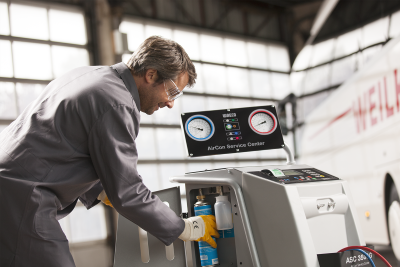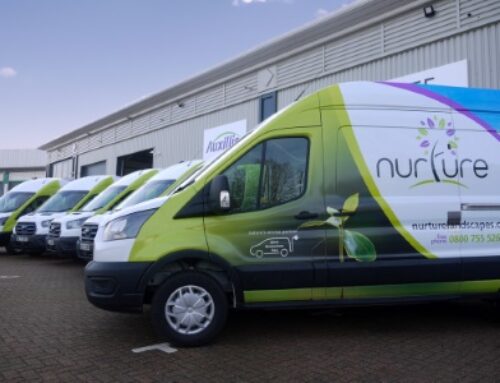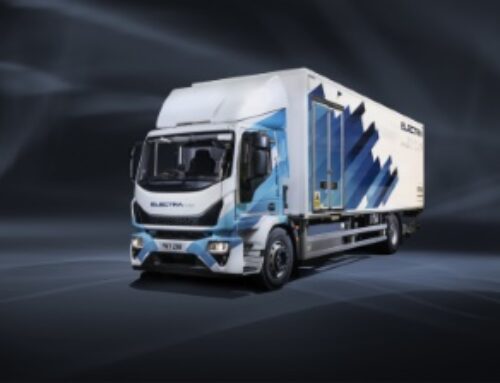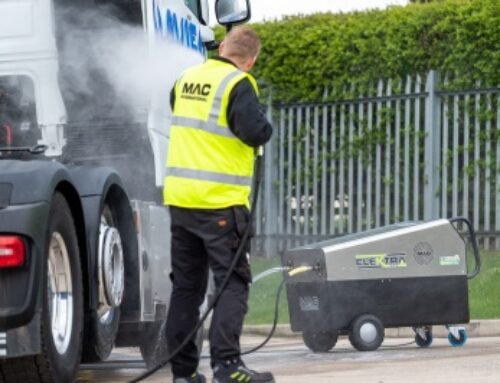Totalkare: is your air con ready?
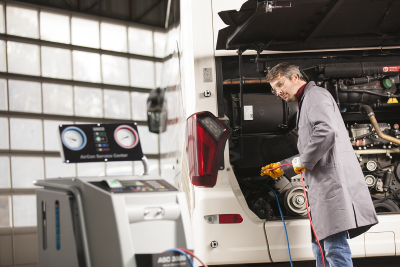 With spring in the air, workshop equipment provider Totalkare has reminded fleet operators of the importance of ensuring on-board air conditioning (AC) systems are in good working order, and offered advice on their upkeep.
With spring in the air, workshop equipment provider Totalkare has reminded fleet operators of the importance of ensuring on-board air conditioning (AC) systems are in good working order, and offered advice on their upkeep.
“Although the UK isn’t known for its blinding hot summers, your air con system is usually used more often than think,” said the company.
“Whether it’s cold in the morning and you need warming up, or it’s a hot summer’s day and you need cooling down, the unpredictability of the weather means you need certainty in your air con – you never know when your drivers will need it, and you never know how much use it’s going to get.
“In fact, long periods without use can actually be detrimental to the functioning of air conditioning systems, with damage to seals and leakage being a particular problem. But here’s the good news: servicing your fleet’s air conditioning has never been easier.”
The company offers a full range of Waeco tools to help service fleet AC systems, from fully automatic service units to analysis kits to keep vehicles and drivers safe.
Taking the hassle out of AC servicing
“With a fully automatic and user-friendly Air Conditioning Service Unit, like our new Waeco G-Series range of service units, you can automate the process of servicing your AC systems – to keep your vehicles cool, comfortable, and ready to hit the hot roads,” said Totalkare.
“Our all-in-one AC Service Units follow a simple, 5-step process:
- Recovering the refrigerant from the vehicle’s AC system.
- Separating the used oil from the refrigerant, purging the used oil into an attached container.
- Vacuum the vehicle’s AC system of moisture and any used oil, whilst checking for leaks within the system
 using the vacuum.
using the vacuum. - Re-installing any used oil taken from the vehicle and installing a very small amount of UV dye checking for any final leaks.
- And finally, charging the vehicle’s AC system with the exact amount of refrigerant it needs.
“It’s a fast, simple process that’s fully automatic – saving time and money, and reducing the risk of human error. The range also features exclusive low emission machines, helping you to do your bit for the environment.
“Each Air Conditioning Service Unit comes with a USB interface for exporting service data, adding accessories and updating its software – as well as a database that stores the charging amounts for up to 100 vehicles. The great thing about USB software updates is that they are completely free, so that is one ongoing maintenance cost you no longer need to worry about.”
Checking for leaks
Leaking refrigerant is one of the most common problems with any air conditioning system, says Totalkare, but it’s also one of the hardest problems to spot if you don’t have the right equipment.
“If you want the most efficient AC servicing for your customers or your own fleet, you’ll need a dedicated leak detector.”
The company offers the following advice on how to choose the right kit for the job, depending on specific requirements.
“If you’re doing an initial test on a system with a strong leak (or a system that’s already empty), you can use a Nitrogen Leak Detector – which uses differential pressure to help you find the source of the leak,” said Totalkare.
“If you need a fine-tuned spot check on the tighter spaces across different areas of a vehicle’s AC system, you’ll need a compact and portable Electronic Leak Detector. It’s a handheld device with a measuring head on a flexible neck – so you can detect leaks in those hard-to-reach places where other types of detector might not work.
“And if you’re looking for a detection system that preserves the AC system and its internal refrigerant, you can use a UV Leak Detector. It’s made with high-quality Tracer additives for high detection accuracy – with no solvents, no risk of corrosion, and no extra moisture introduced into the AC system.”
Keeping vehicles clean and fresh
AC systems are notorious for collecting moisture and dirt, the company points out, meaning that they can become a breeding ground for micro-organisms and undesirable smells.
“To keep your drivers comfortable and their working environments safe, you’ll need to give your AC systems a regular and thorough cleaning,” it said.
“With a high-performance Air Conditioner Disinfection unit, you can deliver cleaning fluid throughout an entire AC system at a high flow rate – which means it can even disinfect the AC systems of larger vehicles, such as trucks and buses.
“And if you’re looking to freshen up the cabin for your drivers, you can hook up an easy-to-use Ozone Generator directly to your vehicle’s air duct. Using ozone oxidation, you can neutralise the bacteria, viruses, and mould that cause unpleasant odours – eliminating bad smells at the source, without any chemical substances.”
Protecting your fleet
When your fleet’s on the road in the summer months, your vehicles’ air conditioners are in constant use, says Totalkare, and that means they’re continually susceptible to wear and tear.
“If you want to extend the life of your AC systems (and reduce the amount of servicing they need), you need to do everything you can to protect them from damage,” it continued.
“Keep a good supply of the correct compressor oil to give your AC systems a longer life. We use an exclusive range of Profil oil, that protects the vehicle and our machines from moisture, allowing the longevity of not only the air con machine but your vehicles’ hoses and key air conditioning components.
“Use a Universal Flush Container to clear away aggressive substances and contaminants from the refrigerant circuit.
“And filter out sealants before they can get in – with an attachable Recycle Guard that fits between your service unit and your vehicle’s AC system.
“But most important of all: you need to be sure that you’re using the right refrigerant for every vehicle you service.
“It’s not just a case of potential damage to your AC systems. If you use the wrong refrigerant (or accidentally mix refrigerants), you could cause a dangerous situation out on the road for your drivers or your customers.
“So to help you make sure you’re using the right substances, we’ve got a range of miniature identifiers and gas analysis tools – so you can check the purity of your refrigerant before every service.”


